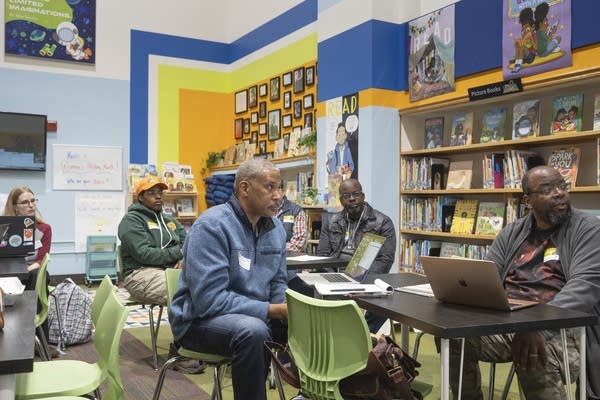Stunning end to a long career: North Minneapolis charter school names interim leader after firing founder

The board of Harvest Best Academy votes on a new interim CEO at a meeting on March 25, 2025.
Aaron Nesheim | Sahan Journal
Go Deeper.
Create an account or log in to save stories.
Like this?
Thanks for liking this story! We have added it to a list of your favorite stories.


